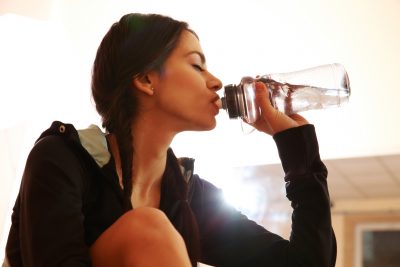New Client Special – One Free IV Add-in (Up to a $30 Value) Schedule Now
7 Signs of Dehydration

How to Survive Cold and Flu Season
January 22, 202015 Tips for Preventing Hangovers
March 9, 2020When you become dehydrated, your body lacks the fluid it needs to carry out daily functions. Every day, we excrete fluid as sweat and urine, and if we don’t replace it, we can become dehydrated.
While we often associate dehydration with the summer, you can get dehydrated any time of year. Learn the common causes and signs of dehydration.
Causes of Dehydration
Losing more fluid than you take in can lead to dehydration. Often, people simply don’t drink enough water throughout the day. Certain conditions can contribute to dehydration, such as:
- Vomiting
- Diarrhea
- Sweating or urinating more than normal
- Running a fever
In these cases, you often don’t replace what you lose because you aren’t thirsty, you feel weak or you worry about getting nauseous. Exercising outdoors during hot weather can also lead to dehydration.
Symptoms of Dehydration
Here are the top seven symptoms of dehydration in teens and adults:
- Headaches
- Dizziness
- Fatigue or sleepiness
- Shallow breathing or increased heart rate
- Extremely dry skin
- Fainting
- Dark yellow-colored urine
Among babies and younger children, you may notice different symptoms, such as dry diapers, dry mouth and sunken eyes. Since babies can’t tell you they feel dehydrated, look for other signs, like crying without any tears running down their face.
Book IV Therapy for Dehydration
Who Is at Greatest Risk of Getting Dehydrated?
Older adults, babies and people with chronic conditions may be most vulnerable to becoming dehydrated. If you have a sore throat, you may also get dehydrated if you don’t feel like drinking because it hurts your throat.
How to Rehydrate Yourself
If you suffer from the signs of dehydration, you need to replace fluid quickly in order to recover. Start with water, but you can also try clear broth, popsicles and sports drinks to help replace electrolytes and salt. The daily recommended water intake is 15.5 cups for men and 11.5 cups for women, but this can vary depending on activity level and other factors. You should avoid drinking anything with a lot of caffeine, which can dehydrate you further. Don’t consume soda, since you don’t want too much sugar.
You need to address the underlying cause of dehydration, or it won’t get any better. If you suffer severe diarrhea or vomiting for more than 24 hours, visit a physician to receive treatment. You may require medication for a full recovery. You should also see a doctor if you can’t keep fluids down.
Consider IV Therapy for Dehydration
IV therapy can help you recover from dehydration. While you should still continue to drink fluids, an IV can work more quickly. It pumps fluid directly into your blood, which can lead to faster alleviation of dehydration symptoms.
Sometimes dehydration occurs at the worst possible time, and you need to find a way to feel better quickly. Getting an in-home IV drip is the most convenient way to receive treatment, especially if your dehydration has been caused by illness. This way, you don’t have to leave your home.
Need to find IV therapy near you? We offer in-home IV services for dehydration, allowing you to stay in your house while you recover. Fill out our online contact form or give us a call or text at (214) 470-2008.




